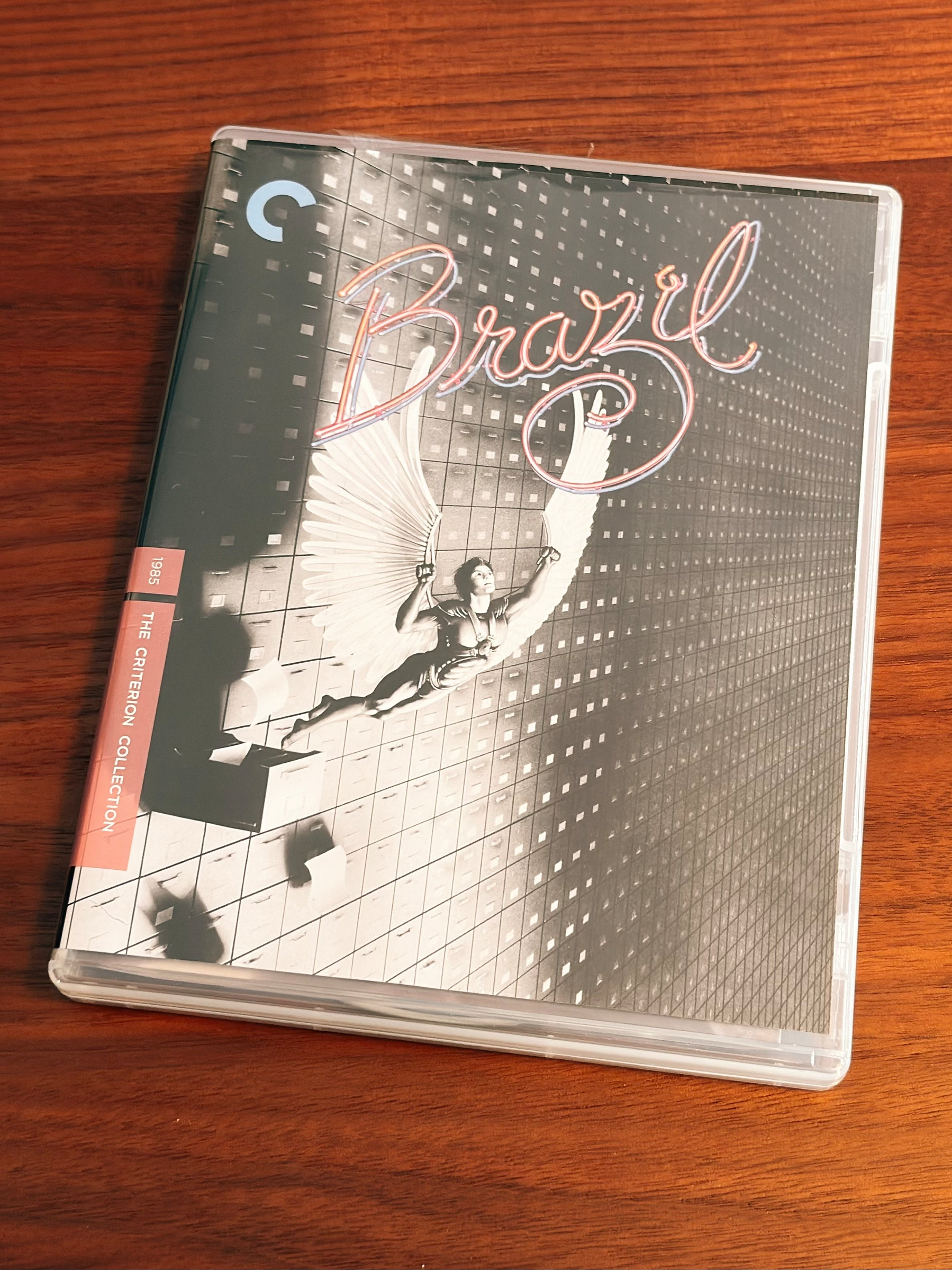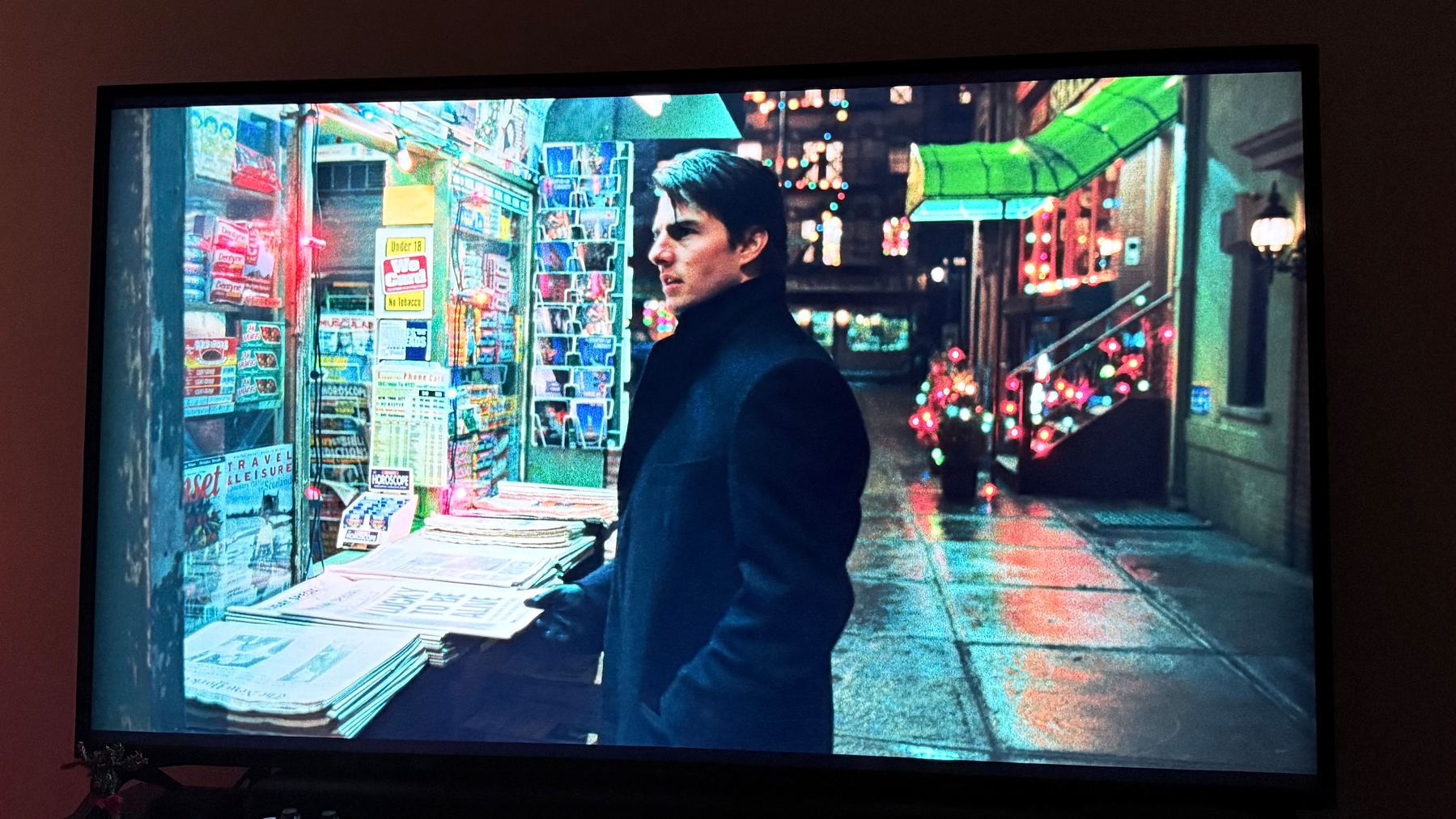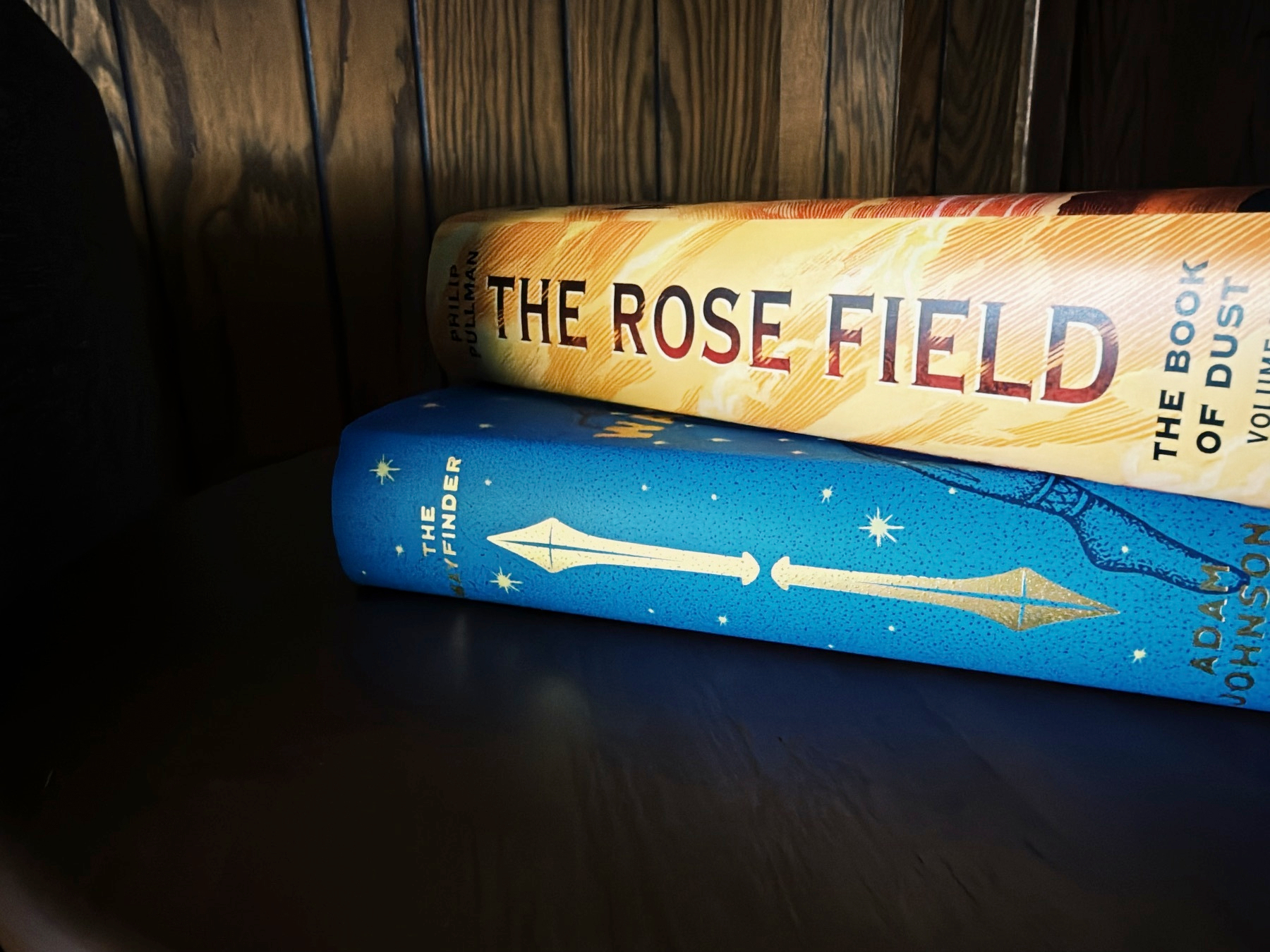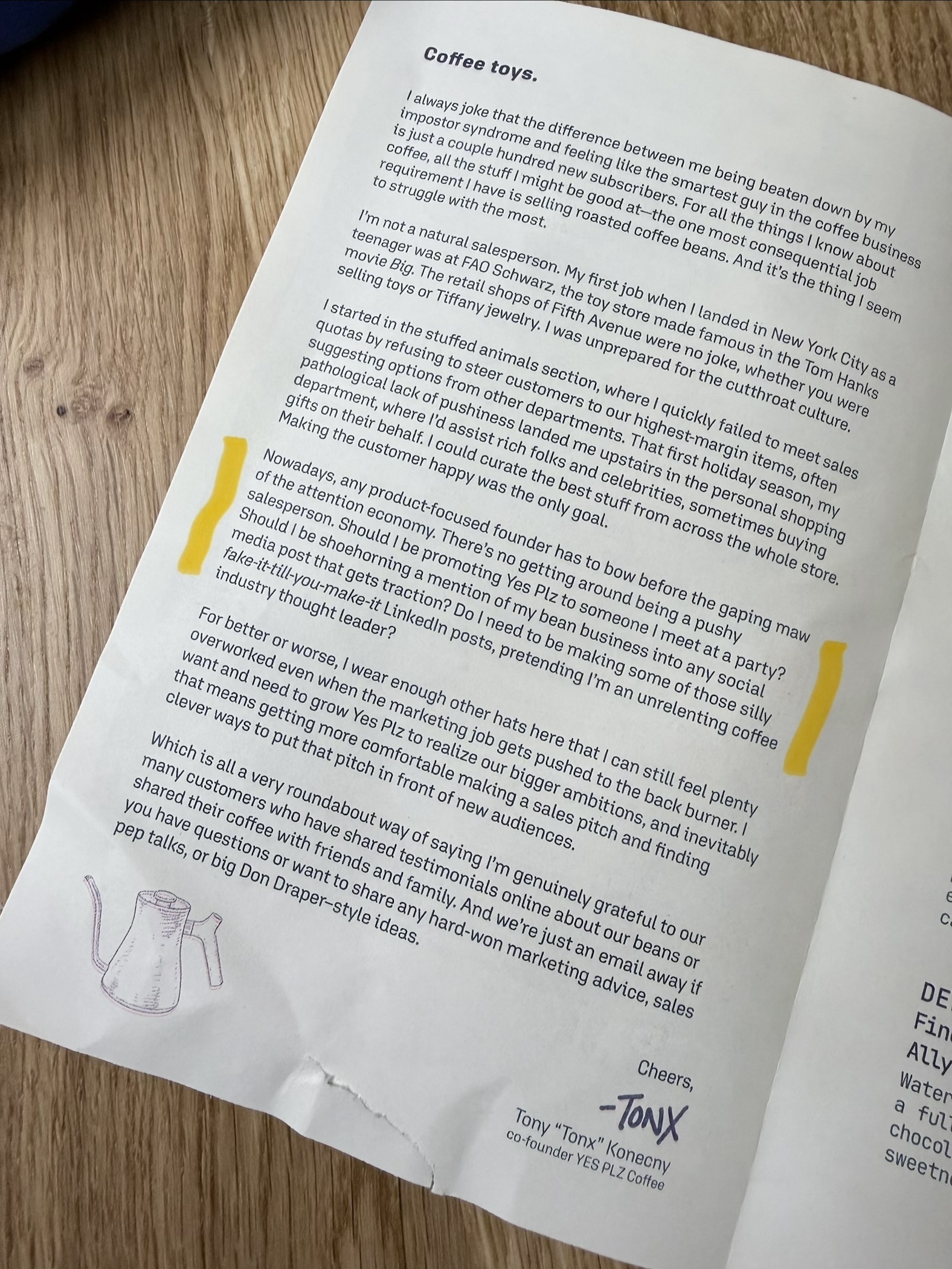A grand way to start the year: “Dedicated to bad writing… and other irregular tributes.”
Brazil, Terry Gilliam’s manic daydream of totalitarian pandemonium and comic dystopia, holds up marvelously after forty years (obviously, more on the nose than ever). Criterion recently released a new 4K version (not pictured) that I would hope irons out a few crummy scans in this one, but still a good watch either way. Having grown up spinning the 480p DVD, anything is better.

Does one need to get their mind out of this rot, or is it accurate:
… the endless death declarations tell us something about how we process cultural change, which is to say, very bloody badly. We’re nostalgic creatures who mistake our own diminishing capacity for wonder as evidence of external decay. […] Am I describing the world, or am I describing what it feels like to have been young once and not be young anymore?
In watching Criterion’s 2025 4K release of Eyes Wide Shut, my immediate thought was that the grain and contrast is spectacular. And evidently, this was a major part of the release: they went back to the original 35mm celluloid for scanning, and it has yielded a film-like master. Bravo.
Edit: Screen Anarchy notes a few of the details from an interview with Larry Smith (the lighting cameraman from the production), available on the disc.
Grain is showy at times – but this is by design, as Kubrick, who preferred bright, glowing images, pushed the film stock two stops in processing in collaboration with his lighting cameraman, Larry Smith, who describes the approach in a newly-recorded interview on the disc.
Smith has gone on to re-time the entire picture during the restoration, attempting to bring it as close as possible to what he believed Kubrick was looking for, as Kubrick died before the film was originally timed.
The resulting image has extraordinary depth and colour fidelity, even given that the colours (nighttime blues; tungsten oranges) are intentionally oversaturated. This is the best I’ve ever seen the film look, including 35mm print projection.

The Disney and OpenAI licensing partnership seems like a terrible idea, insofar as controlling IP representation and the risk of diluting branding — unless, of course, there are critical limitations for usage and context.
Tad alarmist of an article, but good effort for a warning bell against the generational risks of children using AI:
Social-media feeds have already created echo chambers where people see only views they agree with (or love to hate). AI threatens to strengthen these echo chambers and lock children into them at an early age. […] Yes-bots threaten to create children not used to taking turns, who grow up into colleagues unable to compromise and partners unfamiliar with the give-and-take required in a relationship.
This tracks for adults, too.
This may sound counter-intuitive, but I just discovered that the WSJ has a specific app that digitizing the print experience (aptly named WSJ Print). Having been an off/on subscriber for years, I missed its release in 2020, but love it. Can’t imagine there are many users, but appreciate it exists.
In light of the Warner Bros dilemma, Jason L. Riley writes on the movie theater’s inevitable, unfortunate decline. And as much as we dread the day… it’s likely coming. Only a few generations will remember:
The ticket lines could be long. You had to arrive early for evening showings, particularly on weekends. But what resonated more than the setting was the shared experience. Watching “E.T.” or “Raiders of the Lost Ark” or “Superman” on a giant screen in a dark theater with total strangers offered a visceral thrill that could never be replicated in my living room.
Speaking of the Mad Men debacle on HBO Max, special effects wizard Todd Vaziri has an analytical post up about this.
It appears as though this represents the original photography, unaltered before digital visual effects got involved
The Verge on HBO’s poor execution of the “remastering” of Mad Men in 4k for streaming. It exemplifies bad stewardship of assets and ill-advised processes (missed cropping-out of production crew from scenes we’ve already seen properly sized for TV?). All the more reason to own a Blu-ray version.
Waking up to the first snowfall of the season up here. It’s been tardy for the last several years in a row now, for whatever that’s worth.

Author Robin Sloan’s suggested gift guide is a reprieve from the usual banality and homogenous offerings found elsewhere. Focused on uniquely consumable, durable, and cosmic gifts (including, of course, books), this is probably one of the few relevant lists to pay attention to.
✱ Regional Film Reviews & the Beauty of Human Connection Through Art
As a film lover and, particularly, an enthusiast for film criticism – one of the best ways to truly immerse yourself and re-evaluate your perspective on a given piece of work – I enjoyed this small but important note in Racket’s bi-weekly membership newsletter from their resident film critic, Keith Harris.
Why does a hyperlocal website need movie reviews when you can find them everywhere online? Because a regional criticism scene matters. The coasts shouldn’t totally dominate the way we talk about art.
While I can’t link to the newsletter since it’s only via email, the point of this is that Keith has an important sentiment about film. In an era where it seems very few people have the time or attention to indulge in deep dialogue about films anymore, let alone read reviews, folks need to be reminded that [most] of this art isn’t something to simply pin against aggregate ratings or a singular, outspoken voice from New York or California. Regional, contextual perspectives and attitudes are welcome and warranted here.
Perspective and interpretation is the flip side to creation, and that’s the beauty of human connection through art. We may connect magically over a line, an image, a sound, or the intricate unification of all of them, or have a widely different connection to a piece of music used to the backdrop of a scene that resonates because of known experiences, regional differences, or a wholly unique memory. One of the most notable pieces I’ve ever read on this was Geoff Dyer’s Zona, a wildly opinionated, sarcastic, and thoroughly sardonic take on Tarkovsky’s Stalker. When I read that, it reminded me at a critical age of film appreciation that not everything needed to be interpreted “correctly”. You can absurdly over-analyze a film that can be interpreted in a myriad of ways and still come out the wiser.
I only wish there was even more accessible film criticism for newer generations, because cinema is a rich culmination of so many complementary art forms, its endless in the ways of reward.
Valve’s Steam Machine and controller are legitimately one of the more exciting hardware announcements in a long time. Beautiful baseline models, customizable aesthetics, obvious integrations into a well-established Steam media library, and SteamOS ecosystem operability make this compelling.
Always funny to see emails from software products seep back into the inbox after years, and I mean years, of silence. Been getting a steady drip from Maintain the last few months, who have had a Mac OS maintenance app out since 2004 called Cocktail. Used to have it to customize the dock, I think?
Fascinating interview with Helen DeWitt on the highly improbable methods and circumstances leading to her latest, 25-years-in-the-making novel, Your Name Here. Looking forward to cracking this open after The Rose Field.
Told by agents that the book was hard to follow, DeWitt’s response was to make it even more disorienting. She added a series of second-person narrators. She wove in a novel-within-a-novel by her fictional doppelgänger Rachel Zozanian, titled “Lotteryland,” which used chapters from one of DeWitt’s unfinished works, a satire about a country where everything is distributed by lottery. She made difficulties that she and Gridneff had writing the book, and their arguments about where it was going, part of the story.

Though Dan Brooks’s take down of the “new, lonely vices” reads as more of an opinion piece, it certainly feels like a practical way to assess:
I hope some readers will agree that although the old vices had net negative effects on some people’s lives, their benefits—for those who pursued vice in moderation—went beyond instant gratification to something more valuable. To spend Saturday night at the bar is, in many cases, to spend time with friends and meet new people. To give in to one’s carnal urges is to experience increased oxytocin levels in the short term and, in certain cases, to find lasting companionship. And gambling at a casino, while it is almost never a smart investment, is at least an excuse to get out of the house, chat, and experience the particular type of empathy that comes from losing alongside strangers. Vice can bring people out of themselves to be with others, even if that means coming together to do what they probably should not.
That the new vices are so uniformly solitary suggests that the national character might become more solitary, too. This trend is unsettling, but perhaps more alarming is that large numbers of people could become so oblivious to the upside of vice as to decide that it is better pursued alone. I would hate to think that, in our collective understanding of sex and gambling and getting wasted, so many Americans would conclude that the endorphins are the only point.
As the autumn winds churn through the outside world, I’m increasingly excited to settle into warm evenings by a fire, voraciously reading through my stack of recently published books:
- Philip Pullman’s The Rose Field
- Helen DeWitt’s Your Name Here
- Adam Johnson’s The Wayfinder

And herein lays the true goal of OpenAI with ChatGPT Atlas:
…by acting as ChatGPT’s agent, you can hold open the door so that the AI can now see and access all kinds of data it could never get to on its own. As publishers and content owners start to put up more effective ways of blocking the AI platforms from exploiting their content without consent, having users act as agents on behalf of ChatGPT lets them get around these systems, because site owners are never going to block their actual audience.
More lamenting of the malaise of the Internet, but a thoughtful one from Kyle Chayka:
Remember having fun online? It meant stumbling onto a Web site you’d never imagined existed, receiving a meme you hadn’t already seen regurgitated a dozen times, and maybe even playing a little video game in your browser. These experiences don’t seem as readily available now as they were a decade ago. In large part, this is because a handful of giant social networks have taken over the open space of the Internet, centralizing and homogenizing our experiences through their own opaque and shifting content-sorting systems.
What a time to release something so terrifyingly dystopian: decor to dress up your surveillance cameras.
Unexpectedly found Kirstie Kimball’s Beyond Beurre Blanc blog, and it’s tremendous. Exactly the kind of thing I’d love to write if I ever pivot out of the marketing industry… Her piece on New Scenic Cafe is perfect.
A warm voice greeted me when I called, asking me how I was. I could hear kitchen noise and guest chatter in the background. I knew exactly where the host was standing, smack in front of the door, 10 feet from the kitchen, in a waiting room likely full to the brim.
I live on the planet Earth in 2025. I see the storms are getting worse. I see the natural world is becoming really uncontrollable and that we’re leaping before we look in terms of AI and technology creation, and how that impacts society. So, the world of Alien doesn’t seem that alien to me.
Noah Hawley on his Alien: Earth series
I do appreciate Tonx’s forthright reckoning with himself/the industry on how to operate an independent, honest DTC business without pre-established celebrity clout (I mean, outside of the coffee space, I suppose, but he is still roasting and selling coffee).

Halfway through Ray Nayler’s Where the Axe is Buried. If you want near-future existential dread, this is the book for you. Masterclass in pulling in a reader through approachable but slightly foreign world building with an intriguing, politically relevant story.
